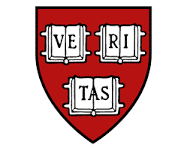As a non-intellectual myself, I am quite content to let the academic club police itself in regard to its own internal issues, such as what is or isn’t plagiarism and what penalties plagiarism might merit. As a citizen and a human being, I was much more directly offended by the former Harvard President’s problematic comments when testifying to Congress last month – the debacle that began the unravelling that resulted in her inevitable downfall. Her answers on that occasion were, on the most charitable interpretation, morally obtuse, but they were acutely revelatory of the moral blight that has overcome much of academia.
Like « fascism » and other political epithets, « genocide » may be a word which is easily overused and which should be employed only with great reserve and precision. That said, not a lot of « context » is required to figure out what Hamas is about, nor should a lot of « context » be required to condemn the ideologies that endorse Hamas and its goals. Any hesitancy in this regard must reflect a deeper moral crisis. And it is that deeper moral crisis which is damaging American elite higher education.
Full disclosure: while I never attended Harvard, I did benefit from graduate education at another « Ivy League » school. I have only the fondest memories of my five years as a grad student at Princeton in the 1970s. It was an exhilarating intellectual environment and an intellectually liberating experience. But that was then. A lot has happened in elite higher education since that time. Since I have no direct experience of contemporary elite universities, I cannot evaluate them directly. I can only observe the results, as they impact the wider society. It is that troubling impact which was on display at that unforgettable congressional hearing.
Some of elite education’s decline has been blamed on so-called DEI policies (an acronym one of my more academic acquaintances has referred to as « Discrimination, Exclusion, Intimidation »). Personally, I suspect DEI is itself as much a symptom as it is a cause – a typical instance of overreach that highlights an underlying confusion of values, or better an abandonment of once held fundamental values.
As George McKenna has reminded us in The Puritan Origins of American Patriotism (Yale U. Pr, 2007, p. 240), two of the strains of thought most deeply rooted in American history have been Puritanism and populism. My sense is that American society today increasingly reflects the degeneration of each of those tendencies into its worst form. On the right, contemporary conservatism has largely dissolved itself and been replaced by a particularly hateful and dangerously authoritarian form of populism. On the left, liberalism still survives but is undergoing a progressive deformation, of which « wokeness, » DEI, etc., are all serious symptoms. Contemporary Harvard, once-upon-a-time the original Puritan University, may be what happens when Puritanism loses its soul, but pushes full steam ahead in its self-righteous, sectarian pursuit of self-referential power.
I am not accustomed to quote (or even regularly read) Compact Magazine, but a recent Compact article by Princeton Assistant Professor of Politics, Greg Conti, has offered elite universities some helpful practical advice: « They should protect the rights of students to have nonpolitical spaces on campus (like libraries and dorms) and should remember that the opportunity to study and work in the absence of political intrusions is a great part of what the university exists to provide. They should promote faculty and evaluate students without respect to demography or ideology, seeking to abide not just by the letter, but the spirit of our nondiscrimination laws, including the recent Supreme Court ruling on affirmative action; and if the fact that in a liberal-democratic society it is deeply corrosive for powerful institutions to find ways around aspects of the law they happen to disagree with is not compelling enough reason to do so, then they should remember that these discriminatory policies are deeply unpopular across all racial groups. » (« The Rise of the Sectarian University, » Compact, December 28, 2023).
Such advice barely scratches the surface of what has gone wrong in an intellectual culture that has become alienated from its original mission and purpose. Elite universities like to imagine themselves as expressions of the highest ideals and values. In a way which was not envisioned, they have become the expressions of a fundamental moral blight at America’s heart.
Image: Harvard University’s Coat of Arms, which ironically features the word Veritas (« Truth »).





